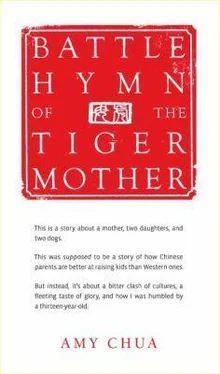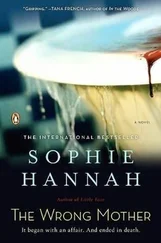Amy Chua - Battle Hymn of the Tiger Mother
Здесь есть возможность читать онлайн «Amy Chua - Battle Hymn of the Tiger Mother» весь текст электронной книги совершенно бесплатно (целиком полную версию без сокращений). В некоторых случаях можно слушать аудио, скачать через торрент в формате fb2 и присутствует краткое содержание. Год выпуска: 2011, ISBN: 2011, Издательство: Penguin Press, Жанр: Биографии и Мемуары, Современная проза, на английском языке. Описание произведения, (предисловие) а так же отзывы посетителей доступны на портале библиотеки ЛибКат.
- Название:Battle Hymn of the Tiger Mother
- Автор:
- Издательство:Penguin Press
- Жанр:
- Год:2011
- ISBN:9781594202841
- Рейтинг книги:4 / 5. Голосов: 2
-
Избранное:Добавить в избранное
- Отзывы:
-
Ваша оценка:
Battle Hymn of the Tiger Mother: краткое содержание, описание и аннотация
Предлагаем к чтению аннотацию, описание, краткое содержание или предисловие (зависит от того, что написал сам автор книги «Battle Hymn of the Tiger Mother»). Если вы не нашли необходимую информацию о книге — напишите в комментариях, мы постараемся отыскать её.
This was
to be a story of how Chinese parents are better at raising kids than Western ones.
But instead, it’s about a bitter clash of cultures, a fleeting taste of glory, and how I was humbled by a thirteen-year-old. From Publishers Weekly
Chua (Day of Empire) imparts the secret behind the stereotypical Asian child’s phenomenal success: the Chinese mother. Chua promotes what has traditionally worked very well in raising children: strict, Old World, uncompromising values-and the parents don’t have to be Chinese. What they are, however, are different from what she sees as indulgent and permissive Western parents: stressing academic performance above all, never accepting a mediocre grade, insisting on drilling and practice, and instilling respect for authority. Chua and her Jewish husband (both are professors at Yale Law) raised two girls, and her account of their formative years achieving amazing success in school and music performance proves both a model and a cautionary tale. Sophia, the eldest, was dutiful and diligent, leapfrogging over her peers in academics and as a Suzuki piano student; Lulu was also gifted, but defiant, who excelled at the violin but eventually balked at her mother’s pushing. Chua’s efforts “not to raise a soft, entitled child” will strike American readers as a little scary-removing her children from school for extra practice, public shaming and insults, equating Western parenting with failure-but the results, she claims somewhat glibly in this frank, unapologetic report card, “were hard to quarrel with.”
(Jan.)
(c) Copyright PWxyz, LLC. All rights reserved.
Chua’s stated intent is to present the differences between Western and Chinese parenting styles by sharing experiences with her own children (now teenagers). As the daughter of Chinese immigrants, she is poised to contrast the two disparate styles, even as she points out that being a “Chinese Mother” can cross ethnic lines: it is more a state of mind than a genetic trait. Yet this is a deeply personal story about her two daughters and how their lives are shaped by such demands as Chua’s relentless insistence on straight A’s and daily hours of mandatory music practice, even while vacationing with grandparents. Readers may be stunned by Chua’s explanations of her hard-line style, and her meant-to-be humorous depictions of screaming matches intended to force greatness from her girls. She insists that Western children are no happier than Chinese ones, and that her daughters are the envy of neighbors and friends, because of their poise and musical, athletic, and academic accomplishments. Ironically, this may be read as a cautionary tale that asks just what price should be paid for achievement.
—Colleen Mondor












